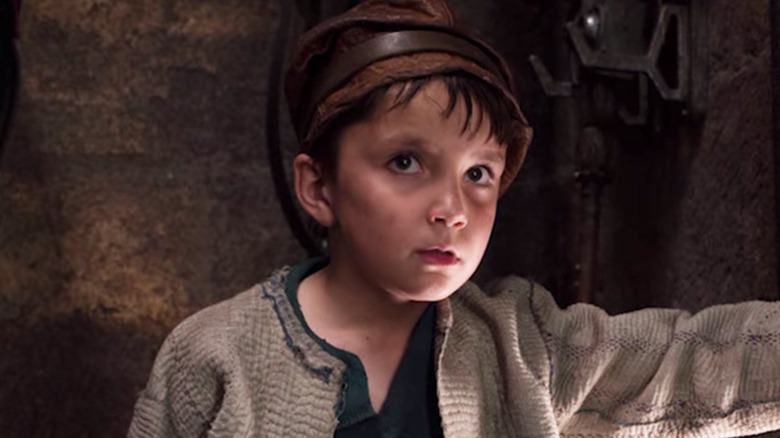
Today's major sci-fi franchises, like "Star Wars" and Marvel, actually have story committees who carefully comb through scripts to ensure they make sense and don't contradict not just their own plot points, but those of other movies. In the past, and to some degree still today, studio interference, writer-director conflicts, unfinished scripts, and the like often led to science fiction movies that would invariably have at least one bad scene that made no sense. Often, such a scene wasn't intended that way, but came about at best a compromise; nonetheless, there's a reason the most notable genre movies have only in recent years started becoming regular fixtures on critics' top-10 lists.
This isn't to say we've solved the problem, as you'll see below. Even with more care toward the story and more interest in creating big twists, today's sci-fi movies can be equally guilty of messing up an otherwise perfect experience with one misstep. Sometimes it's the ending. Other times, it's just a really bad tangent, or a moment that over-explains. Whatever the case, many of the movies herein are still good, and in some cases, highly influential. It's just that one damnable scene that nags at the haters. And they're not necessarily wrong.
Here are 10 otherwise great sci-fi movies that just irritate us with the one thing they get wrong.
Blade Runner
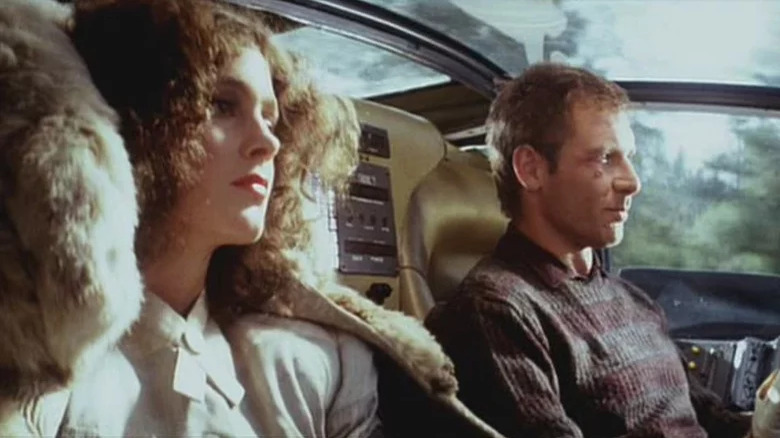
"Blade Runner" is probably the best-known film to fit this list's criteria and the one most notable for actually having its key flaw corrected in later releases. As the grim future noir, set in an eternally dark and raining Los Angeles, comes to its conclusion, replicant hunter Rick Deckard (Harrison Ford) and the female replicant, Rachael (Sean Young), whom he's fallen for, leave the urban hellscape to fly away to a beautiful, pristine countryside. If that was there this whole time, though, why don't more people move there? We've previously had it strongly implied by overhead digital billboards that the only real hope of escape is to off-world colonies. The answer, of course, is that director Ridley Scott didn't want that ending, and the studio added B-roll footage from "The Shining" to make one of the multiple endings of "Blade Runner" feel more upbeat.
It didn't help at the time, as "Blade Runner" disappointed at the box office upon release. Over the years, however, fans came to appreciate Scott's world-building and the movie's ground-breaking aesthetic and slave-revolt allegory (in time, we even got a great sequel). When an accidental screening of an earlier print got cheered by its audience, Warner Bros. tried again, this time the way Scott wanted it, minus the happy ending and Ford's divisive voice-over. Unlike George Lucas' latter-year tampering with the "Star Wars" films, thankfully, the original theatrical cut still exists for those who do prefer it -- misguided though they may be.
Dark City
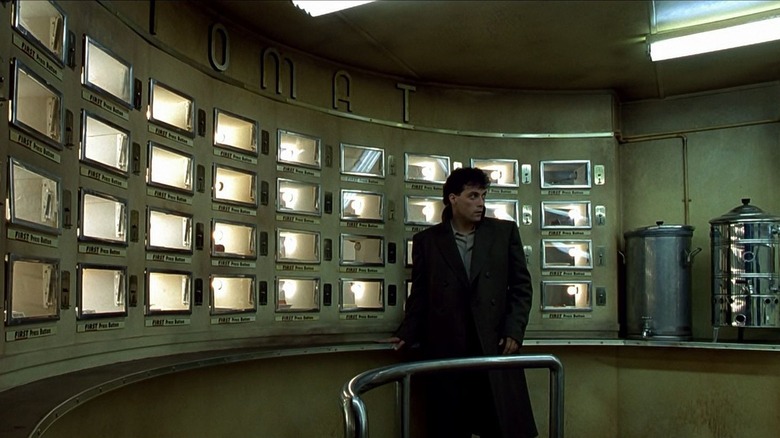
"Dark City," which bears many similarities to the subsequent, better-known "The Matrix," throws Rufus Sewell's Murdoch into a murder mystery where he can't remember anything except vague flashes of a place called Shell Beach. The noir aesthetic and creepy pacing give the whole thing a delicious waking nightmare feel, as "The Crow" director Alex Proyas expanded his gothic sensibility to an even larger canvas. On the run from the police, and weird, inhuman-looking Strangers, Murdoch notices that everyone else falls asleep at midnight, as reality itself is reshaped. Eventually, he realizes he too has that power. But how, and why?
New Line Cinema in the '90s tended to notoriously overexplain its high-concept movies -- "Spawn" and "The Cell" are two other egregious examples -- and decided to spoil the big mystery of "Dark City" upfront, with an opening narration by a horrendously overacting Kiefer Sutherland. The Strangers are aliens whose world is dying, and they're experimenting on humans, with the help and collaboration of Sutherland's Dr. Schreiber. This information puts us way ahead of Murdoch, rather than in his shoes, and puts the movie in the awkward position of playing catch-up. Once Schreiber eventually shows up onscreen, of course, he explains it all over again.
It's lesser known than the "Blade Runner" director's cut, but Proyas did eventually get to release a Blu-ray without the narration. Fans who own the original have another solution -- change the audio to another language for the opening, then switch it back.
Star Wars: The Last Jedi
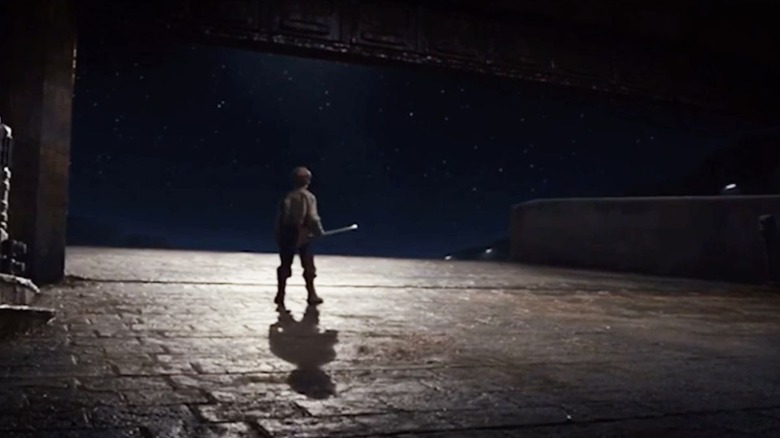
"The Last Jedi" evokes extremely passionate reactions from "Star Wars" fans for being so different from the other films in the saga. Writer-director Rian Johnson's movies often put story structure before character, while calling attention to and critiquing the same. Bringing that to "Star Wars" made "The Last Jedi" appeal to some who had never liked it before, and feel off to some who adore the franchise.
Amid space battles that are still aces, Johnson ended up directing Mark Hamill to his best performance as Luke Skywalker, conveying a life of regret and cynicism that, while drastically different from previous movies, evolved the Jedi Master. And Kylo Ren (Adam Driver) was revealed even more to be a somewhat tragic villain. From his point of view, he's the child of narcissists with PTSD, sent to live with his religious fundamentalist uncle who tried to murder him.
Plus: Who doesn't love porgs?
No, the problem with "The Last Jedi" is its straight-out-of-Disney-casting child slaves, who look like they walked right out of a "Newsies" prequel. Perhaps if they stayed in that one scene in Canto Bight, it'd be fine. But then, at the end of the movie, after the obligatory group shot that ends most Skywalker saga installments, we see the kids playing with the homemade toys of Luke Skywalker, and a broom-holding boy staring up at the stars. The on-the-nose implication: young Rian Johnson, playing with "Star Wars" figures, was inspired to become a filmmaker. Barf.
The Lost World: Jurassic Park
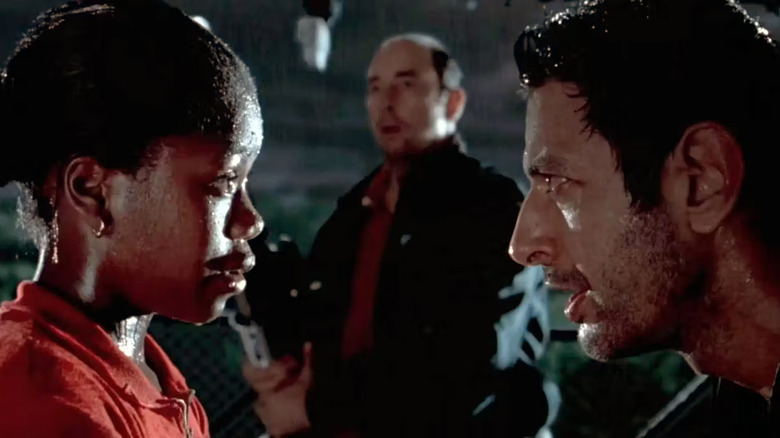
"The Lost World: Jurassic Park" might be one of Steven Spielberg's most underrated films (some might argue it's even the best "Jurassic Park" movie). It's less a Michael Crichton adaptation than it is a tribute to all the old monster flicks Spielberg seems to love, from the 1925 "The Lost World" (the original dinosaur adventure that gives this movie its name) and "Nosferatu" (the empty boat with eaten crew) to "Gorgo" (Mama monster comes for her baby) and most obviously "King Kong," minus the monster being slaughtered at the end, a change every kid wanted to see growing up. He even names the boat "The Venture," in case the storyline of a huckster bringing a primeval monster to a city with disastrous results wasn't clear enough. Many scenes are beat-for-beat references with Spielbergian twists.
But there's a reason it's consistently underrated, and it's because of one glaringly awful scene. Spielberg the dad sometimes gets in the way of Spielberg the master filmmaker, and there's no moment more emblematic of this than when Ian Malcolm's daughter Kelly (Vanessa Lee Chester) uses gymnastics to defeat velociraptors. These are predators that the first movie established as the ultimate alphas, capable of outsmarting master trackers and attacking a tyrannosaurus without fear. If only we had known that all it took was a young girl swinging on bars to kick them. Maybe the completed Jurassic World park ought to have employed gymnasts instead of Chris Pratt's Owen.
Terminator Salvation
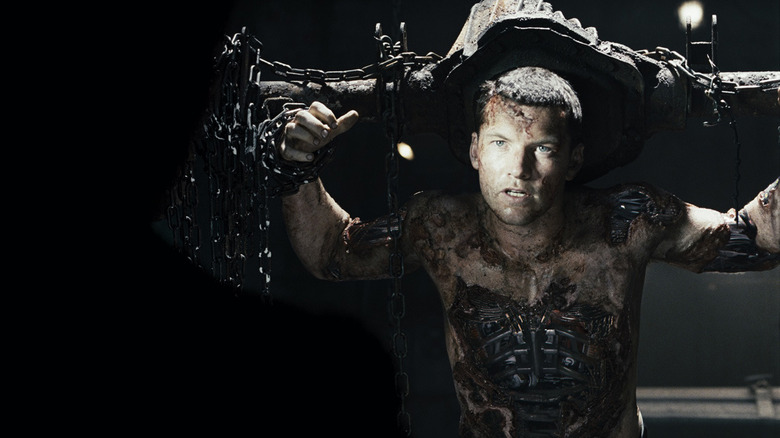
"Terminator Salvation" has a great hook that doesn't even involve the central Connor family, at least not at first. A man named Marcus (Sam Worthington), sentenced to death, instead wakes up in a post-apocalypse future, eventually realizing he's been transformed into a cyborg. On his journey of self-discovery, he encounters Terminator motorcycles, giant Terminator mechs, Terminator serpents, and the creepy, rubber-skinned T-600s. It's our first full-on glimpse of the future war, and in many ways delivers what fans had been asking for.
Sadly, it suffers from Bad Ending Syndrome, by which an otherwise good film sends you out of the theater mad at a stupid final moment and eradicates all the goodwill it has built up until then. When John Connor (Christian Bale) suffers an injury to his heart, Marcus donates his -- pointedly the one part of him that's still human. Nobody does a blood-type match, and the surgery is pulled off successfully in a non-sterile battlefield situation, which seems highly unlikely. The metaphor of the Tin Man from "The Wizard of Oz," who just wanted a heart, is seriously overplayed.
Director McG revealed the "Terminator Salvation" alternate ending would have seen John killed and his skin put on Marcus' Terminator endoskeleton, an idea that would be recycled for "Terminator: Genisys." But when it leaked and got negative responses, a more upbeat one replaced it, which McG knew would "piss off a lot of people." He wasn't wrong.
Batman
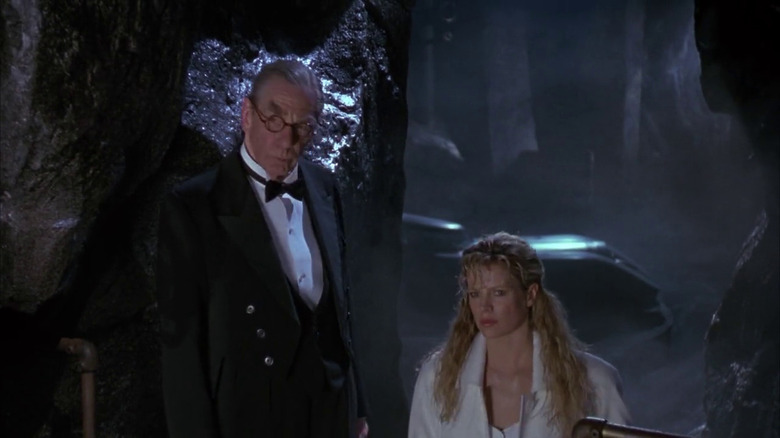
Tim Burton's "Batman," a massive hit at the time, was a trailblazer that arguably began the modern obsession with comic book movies. With quirky A-list casting that paid off, a comic book city designed from the ground up, and a fusion of noir and German expressionism, it blew audiences away at the time. Now that we've seen other Batman interpretations onscreen, the 1989 film doesn't need to be everything to everyone, and some fans critique its fealty to the source. But some of the criticisms are misplaced: Batman did kill villains in the very early comics, for example.
The only misstep that remains egregious is Alfred's massive indiscretion in bringing Vicki Vale into the Batcave. It's not like this is a Batman who needs to retire -- Michael Keaton's Bruce Wayne has only just begun fighting crime. Alfred would seem to be on board with the whole Batcave and all the trimmings, yet he also wants Bruce to settle down with the first desirable woman who comes along, immediately? It's bad enough he blows Bruce's cover story to her right off the ... bat. However, then he just brings this photojournalist into the most secret place in Gotham, presuming she will let her feelings for a guy she slept with once override her career-long instinct to break news?
Even "Batman Returns" addressed this, having Bruce chastise Alfred for it long after the fact. But it's still a bizarre portrayal of Alfred as the world's worst confidante, when his discretion matters the most.
Alien Resurrection
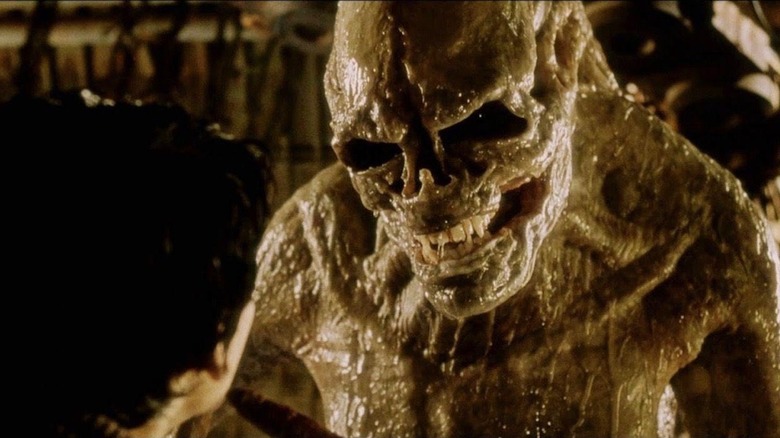
"Alien Resurrection" should have been a slam dunk. Directed by red-hot director Jean-Pierre Jeunet, and featuring a cast that included not just Sigourney Weaver and Winona Ryder, but a who's-who of genre VIPs like Michael Wincott, Ron Perlman, Brad Dourif, Dan Hedaya, and Dominique Pinon spitting out Joss Whedon's hilariously macho-posturing dialogue before we knew it was problematic. Set on a space station where horrific experiments bring Ripley back to life as a clone and mutate the xenomorphs, it initially plays out as a perfect fusion of both horror -- of the body and haunted-house varieties -- and action in a franchise that often lets one overpower the other.
Yet again, a movie that's not bad overall generates disproportionate ill will because of a weak ending. Thanks to gene splicing, the xenomorph queen develops a more mammalian womb and gives birth to a new creature that looks like a melting plastic surgery nightmare. Once again, it gets on the escape ship, and once again, it gets sucked out a window, this time through a small hole because it has no endoskeleton to protect it. Right before it dies, it even seems to talk, which doesn't make much sense either -- it's as if everyone wanted to jump the gun to a movie set on future Earth where the creatures do evolve. Movies that save the stuff you really want to see until the sequel are taking a huge risk, and usually, like "Alien Resurrection," pay for that hubris.
Avatar (Both Extended Cuts)
"Avatar" is a great movie. The numbers don't lie -- it's one of the highest-grossing movies ever, and it was nominated for best picture at the Oscars. But we have a nit to pick with the extended cuts.
On the whole, both the 11-minute-longer and the 30-minute-longer versions add context and illuminate the film further. We see what overcrowded Earth looks like. We learn about Neytiri's sister. The origins of the human-Na'vi conflict get more even-handed, as we learn about the natives initiating some of the hostilities. Naturally, we even get to see Jake and Neytiri plug their ponytails into each other, spurring a million or so subsequent erotic fanfics.
Here's the part we'd like to cut: Tsu'tey's extended death. In the theatrical cut, it's straightforward enough: While attacking an RDA gunship, Neytiri's former betrothed gets shot and falls to his death. Simple, heroic, elegant. In both extended versions, he's still barely alive after he hits the ground. He lives just long enough to personally forgive Jake Sully for effectively stealing his woman and his birthright, and declare him the new chief. None of this, frankly, feels necessary -- it just makes Jake even more of an annoyingly noble savior figure, absolving his more problematic deeds. It also makes the extended cuts, for all that they add, ultimately more irritating than the theatrical.
Star Trek V: The Final Frontier
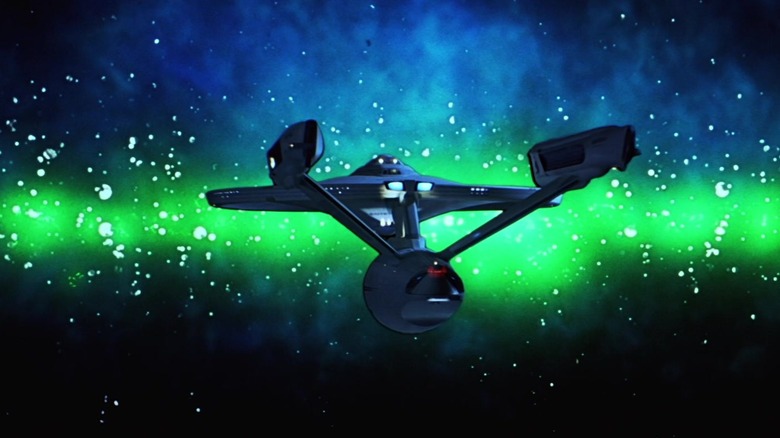
Don't laugh. Just one scene ruins "The Final Frontier?" Isn't the whole thing notoriously ridiculous, from Kirk, Spock, and McCoy singing "Row, Row, Row Your Boat" to Kirk having a debate with "God?" Well, yeah. We're talking about the classic "Star Trek" crew here, and "ridiculous" is part of the package. Remember that time in the original series when they met the Easter Bunny? Or when Spock's brain was removed, yet he still kept walking around? Or the mirror Spock and his evil goatee? The original cast approached such things with the same intensity as harder sci-fi, and there's not one of those episodes that's unwatchable. A campy "Star Trek" with Picard doesn't work so well (see "Insurrection," or rather, don't). A campy Kirk film, however, fits just fine.
So within those parameters, how can "The Final Frontier" possibly fail? Its letdown scene involves a blatant violation of stakes. We are told nobody has been to the Eden planet Sha Ka Ree because it's beyond the Great Barrier. That sounds threatening. So when the "Enterprise" finally makes it to the Great Barrier, boy, do they seem to be in trouble. How will they get through where so many others tried and failed?
Well ... they just do.
Seriously. They just go through it, and nothing adverse happens whatsoever. Nobody explains how this is even possible. In a movie full of silliness, all the rest of said silliness gets explained, save that.
RoboCop (2014)
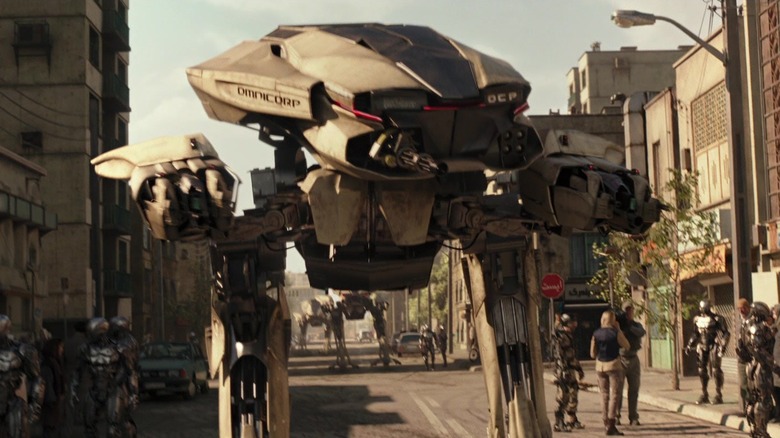
This may sound like a stretch but bear with it. The scene that ruins the 2014 remake of Paul Verhoeven's "RoboCop" is the first one in which we learn the protagonist's name is Alex Murphy.
Why? Because up until then, the movie could have been a sequel. It's arguably a better "RoboCop" film than either of the two sequels to the original, and much of the live-action TV series. It also feels further along in the timeline. ED-209s are in the Middle East, Samuel L. Jackson plays a Bill O'Reilly-ish media propagandist, and OmniCorp's robotic ambitions are far from secret. Additionally, 2014's "RoboCop" boasts more overt body horror elements, plus a nifty twist that Murphy's real hand is preserved so there'll always be a human finger on the police gun's trigger, and an excellent cast that includes Michael Keaton, Gary Oldman, Joel Kinnaman, Jay Baruchel, Abbie Cornish, and Jackie Earle Haley. All of these elements made for an excellent follow-up.
What sinks it is that it's a remake. Verhoeven's original film, a pitch-black satire as well as a twisted Jesus allegory, is one of the greatest sci-fi films ever made. Its magic has never been recaptured in any subsequent franchise extensions, so starting again might make sense on paper, but it will always be doomed to fail by comparison. Had it instead been presented as "RoboCop: The Next Generation," audiences might have cottoned to it more, because in and of itself, it's a good movie.
Read this next: The 95 Best Sci-Fi Movies Ever
The post 10 Sci-Fi Movies That Were Absolutely Flawless Except For A Single Scene appeared first on /Film.
